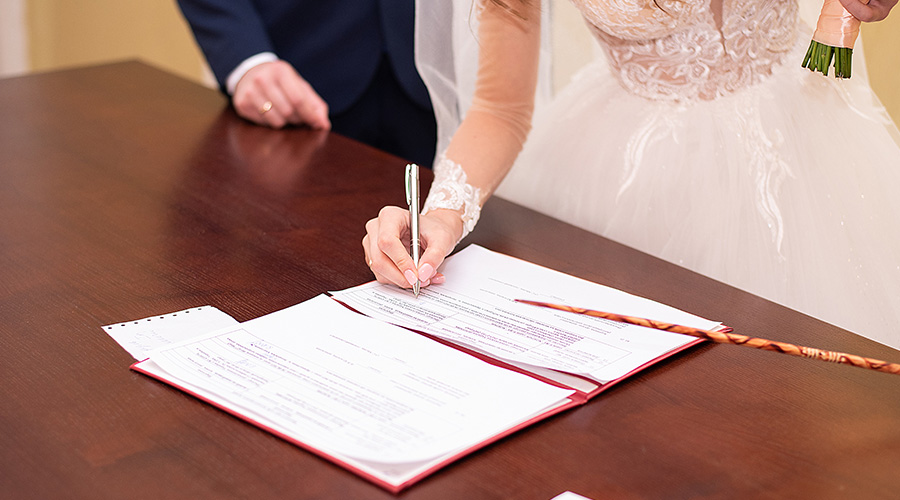Congratulations on your recent marriage! If you're considering changing your name after getting married in Florida, you've come to the right place. This comprehensive guide will walk you through the step-by-step process of filing a Name Change After Marriage in Florida. Whether you're looking to update your legal documents, identification, or simply embrace your new identity, we've got you covered. Let's dive in!
Understanding the Name Change Process
Before you embark on the name change journey, it's essential to familiarize yourself with the process. In Florida, changing your name after marriage involves legal procedures to ensure a smooth transition. The steps may vary depending on your specific circumstances, but the following outline provides a general overview of the process.
Filing the Petition for Name Change
The first step in changing your name after marriage in Florida is filing a Petition for Name Change. This document serves as an official request to the court for a name change. You can obtain the necessary forms from your local county courthouse or download them from the official website of the Florida Courts.
Gathering Required Documents
To support your name change request, certain documents must accompany your Petition for Name Change. These typically include:
- Certified copy of your marriage certificate
- Current photo identification (e.g., driver's license, passport)
- Birth certificate
- Social Security card
Preparing and Submitting the Forms
Once you have completed the Petition for Name Change and gathered the required documents, it's time to prepare your forms for submission. Double-check that all the information provided is accurate and legible. Be sure to sign the forms where required. After preparing the forms, make copies for your records and submit the originals to the clerk of the circuit court in your county.

Publication Requirements
In Florida, the law requires you to publish a notice of your name change in a local newspaper. This serves to inform the public about your intention to change your name and allows anyone with objections to come forward. The clerk of the circuit court will provide you with a list of approved newspapers and instructions for publishing the notice.
Attending the Hearing
Once the publication requirements have been met, you will receive a hearing date from the court. It is essential to attend this hearing to finalize your name change. Prepare for the hearing by bringing all necessary documents, including your Petition for Name Change and the published notice. The judge will review your case and grant the name change if everything is in order.
Updating Your Social Security Records
After obtaining a court order approving your name change, the next step is to update your Social Security records. Visit your local Social Security Administration office and complete the necessary forms. Bring your court order, current identification, and completed application for a new Social Security card. The Social Security Administration will process your request, and you'll receive an updated card reflecting your new name.
Changing Your Driver's License and Identification
To ensure your identification documents reflect your new name, it's crucial to update your driver's license and other forms of identification. Visit your local Florida Department of Highway Safety and Motor Vehicles (DHSMV) office and bring the following documents:
- Court order for name change
- Current driver's license or identification card
- Social Security card
- Proof of residential address
Notifying Other Agencies and Institutions
Once you have updated your Social Security records and driver's license, it's time to notify other agencies and institutions of your name change. Consider the following list as a starting point:
- Banks and financial institutions
- Employer or human resources department
- Insurance companies
- Passport office
- Utility companies
- Post office
- Professional licensing boards
- Voter registration office

Congratulations! You have successfully navigated the process of filing a name change after marriage in Florida. By following the step-by-step guide outlined in this article, you can ensure a seamless transition to your new identity. Remember to stay organized, gather the required documents, and complete all necessary forms accurately. Should you encounter any challenges, consult with a qualified attorney or seek assistance from NameChangeFlorida.com. Embrace this new chapter of your life with confidence!
Frequently Asked Question's.
How long does the name change process typically take in Florida?
The timeline for a name change after marriage in Florida can vary. On average, it takes approximately two to three months to complete the entire process. Factors such as the workload of the court and the accuracy of your documentation can influence the duration.
Can I change my middle name as well during the name change process?
Yes, you can change your middle name along with your last name when filing for a name change after marriage in Florida. Ensure that you include this request in your Petition for Name Change.
Do I need an attorney to file a name change after marriage in Florida?
While hiring an attorney is not mandatory, it can be beneficial, especially if you encounter any legal complexities or require guidance throughout the process. Consider consulting with a qualified attorney for personalized advice.
Can I revert to my maiden name after a divorce in Florida?
Yes, you can change your name back to your maiden name after a divorce in Florida. The process follows a similar set of steps as changing your name after marriage. Consult with your attorney for guidance specific to your situation.
What should I do if my name change request is denied by the court?
If your name change request is denied by the court, you may need to provide additional documentation or clarify any discrepancies. Consult with an attorney to understand the reason for denial and explore your options for proceeding further.




